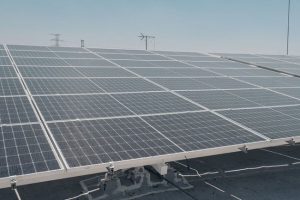Informing and engaging citizens and leaders worldwide for a just, inclusive, and equitable energy transition based on renewables and energy efficiency, will be in focus as the UN observes the first International Day of Clean Energy on Friday, January 26, 2024.

The commemoration takes place at a time when 675 million people still lack electricity, and 2.3 billion people still cook with fuels like wood and dung which is a major contributor to premature death from respiratory diseases particularly for women and children in low and middle income countries, and a significant environmental burden.
“Clean energy is the gift that keeps giving,” said UN Secretary-General, António Guterres, in a message celebrating the International Day. “It can purify polluted air; meet growing energy demand; secure supplies; and connect billions of people to affordable power – helping to ensure electricity access to all by 2030. That is all while saving money and saving the planet. A fair, just, equitable, and urgent transition from dirty fossil fuels to clean energy is essential to avoid the worst of climate chaos and spur sustainable development.” He concluded, “Our clean energy future is unstoppable. Together, let’s bring it into being faster.”
The Secretary-General also welcomed the call made recently by countries at COP28 to triple renewable energy capacity by 2030, citing his belief that a fossil fuel phase out is not only necessary but inevitable. He stated that governments need to act, to accelerate the transition, with the biggest emitters leading the way. To do this, he added, much more climate finance is needed, as well as new national climate plans by 2025 that set out a fair and just transition to clean power.
“UN-Energy members are fully committed to supporting countries in a just and equitable transition to clean energy,” said Achim Steiner, Administrator of the UN Development Programme and Co-Chair of UN-Energy, the mechanism that coordinates energy-related activities of thirty UN organisations and key partners.
“The fact that in 2022, over 50% of the world’s population in developing and emerging countries received only 15% of global investments in renewables, shows the gaping disparities in access to finance for these markets. This reality requires a radical re-thinking of what the just energy transition means for development, and it calls for systems-level change on the ground, with particular emphasis on transforming institutional and governmental structures,” added Steiner.
“On this first International Day of Clean Energy, I urge governments, businesses and organisations to make use of Energy Compacts to register or strengthen their energy commitments on the world stage,” said Damilola Ogunbiyi, Special Representative of the UN Secretary-General for Sustainable Energy for All and Co-Chair of UN-Energy. Since 2021, over 200 Energy Compacts have been registered, with support from UN-Energy, totalling over $1.3 trillion in voluntary commitments for investment and finance through 2030.
Li Junhua, UN Under-Secretary-General for Economic and Social Affairs and head of the UN-Energy Secretariat, stated: “There will be an immediate milestone to deliver on our energy commitments this April when the President of the United Nations General Assembly convenes the global stocktake to accelerate action on SDG7, and again at the Summit of the Future in September. I urge all countries and stakeholders to step up their actions.”
The UN General Assembly established the international day in August when it adopted a resolution, recognising that ensuring clean and affordable energy for everyone — Sustainable Development Goal 7 — is considered essential both to achieve the Sustainable Development Goals (SDGs) by 2030 and to reach the climate goals under the Paris Agreement.
